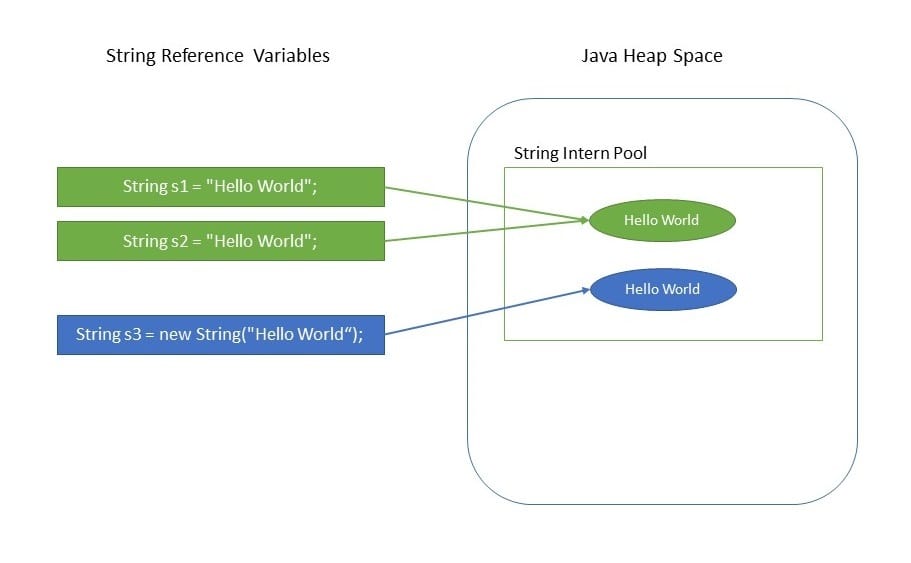Why Are Strings Immutable in Java? Finest Practices and Use Cases
Wiki Article
Discovering the Benefits of Unalterable Strings in Modern Programming Paradigms
In the world of contemporary programs standards, the idea of immutable strings stands as a keystone of durable software application development. By embracing immutable strings, developers can make certain boosted data integrity, boosted string safety, streamlined debugging procedures, boosted protection measures, and effective performance optimization.Boosted Information Integrity

By preventing the alteration of string items, immutability eliminates the danger of unintentional adjustments to the information they hold. This not only enhances the safety of the information but also enhances the dependability of the code that counts on these strings.
Immutability also sustains much safer multithreading settings, as concurrent accessibility to unalterable strings does not position the danger of data corruption through simultaneous adjustments. This building simplifies the process of taking care of strings in identical shows scenarios.
Essentially, immutability functions as a safety shield around the data stored within strings, enhancing their honesty by making sure that as soon as specified, their values remain the same throughout the program's execution.

Enhanced String Safety And Security
Unalterable strings boost the string security of programs by making sure that once a string item is produced, its value can not be customized. This residential property eliminates the threat of concurrent threads trying to change the very same string simultaneously, which might lead to information corruption or irregular states in the program - Why are strings immutable in Java?. In a multi-threaded atmosphere, where several threads access and manipulate information concurrently, the immutability of strings offers a degree of safety and security by ensuring that the information continues to be the same throughout its lifecycleSimplified Debugging Procedures
Provided the improved string safety and security facilitated by unalterable strings, a considerable benefit arises in the world of simplified debugging processes. Unalterable strings, when created, can not be altered, making it easier to trace the flow of data and recognize the source of bugs in a program. This immutability makes certain that strings remain consistent throughout the execution of the program, decreasing the possibility of unforeseen adjustments that can bring about mistakes.When debugging with mutable strings, designers frequently come across problems where a string's worth is changed inadvertently, making it challenging to pinpoint the source of an insect. However, with unalterable strings, the information remains unmodified, enabling developers to focus on assessing the real logic of the code instead of tracking down where and when a string was modified inaccurately.
In addition, unalterable strings streamline the debugging process by enabling less complicated reproduction of insects. Because immutable strings do not change state, developers can recreate and examine pests a lot more successfully, causing quicker recognition and resolution of issues within the codebase. This streamlined debugging workflow inevitably adds to higher software quality and boosted general advancement efficiency.

Increased Safety Actions
Enhancing data defense and strengthening system stability, the usage of immutable strings in software application applications contributes dramatically to increased security actions. Unalterable strings, as soon as produced, can not be changed, providing an important defense against harmful tampering or unauthorized access. By guaranteeing that delicate information kept in strings remains unaltered throughout the program's execution, the threat of information breaches or injection attacks is substantially lowered. Why are strings immutable in Java?. Immutable strings likewise play a crucial function in preventing usual protection vulnerabilities such as buffer overflows and SQL injection attacks, as attempts to manipulate string information at runtime are inherently restricted.Moreover, the immutability of strings enhances the predictability of program habits, making it easier to confirm inputs and protect against unexpected modifications that can compromise safety. This predictability streamlines the procedure of auditing and validating code, enabling programmers to Recommended Site determine possible safety and security technicalities better. In general, including unalterable strings into software application advancement techniques not only enhances the robustness and integrity of applications but additionally enhances their resilience against safety threats.
Effective Efficiency Optimization
When dealing with mutable strings, procedures like concatenation or substring production commonly result in the development of brand-new string things, leading to memory expenses and raised processing time. By permitting strings to remain continuous and stable, unalterable strings promote better memory administration and caching chances, eventually enhancing the general performance of the software program.
Since unalterable strings can not be customized once created, they can be shared across threads without the risk of unforeseen changes, minimizing the demand for synchronization devices and improving concurrency. Immutable strings streamline debugging processes as developers can trust that a string's value will continue to be constant throughout the program's implementation, eliminating prospective errors triggered by mutable state changes.
Verdict
In verdict, the benefits of utilizing unalterable strings in contemporary programming paradigms can not be overemphasized. Improved information integrity, enhanced string safety, visit here streamlined debugging procedures, increased protection steps, and reliable efficiency optimization all contribute to the general effectiveness of programs jobs. By integrating unalterable strings right into programming methods, programmers can benefit from a much more robust and reputable codebase.Immutability, a key function of strings in programs languages such as Java and Python, ensures that as soon as a string things is created, it can not be modified or changed.Unalterable strings boost the string safety and security of programs by making sure that when a string item is produced, its worth can not be modified. Immutable strings likewise play a crucial function in stopping usual protection vulnerabilities such as buffer overflows and SQL injection attacks, as attempts to manipulate string data at runtime are inherently restricted.
By allowing strings to remain unchangeable and continuous, immutable strings assist in far better memory monitoring and caching possibilities, inevitably boosting the overall performance of the software program.
Unalterable strings streamline debugging procedures as programmers can trust that a string's worth will remain constant a knockout post throughout the program's execution, eliminating potential mistakes created by mutable state adjustments.
Report this wiki page